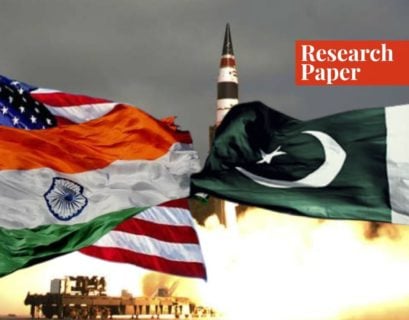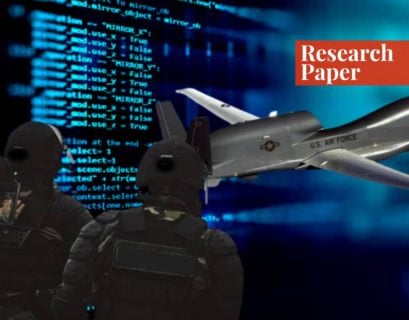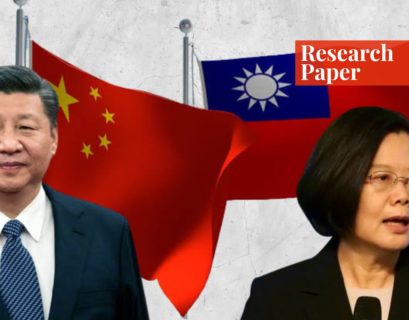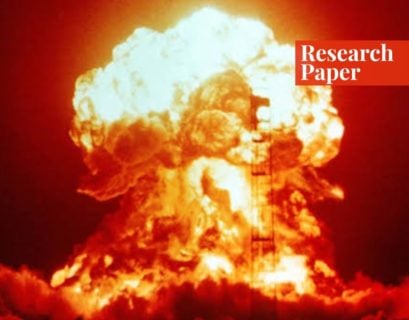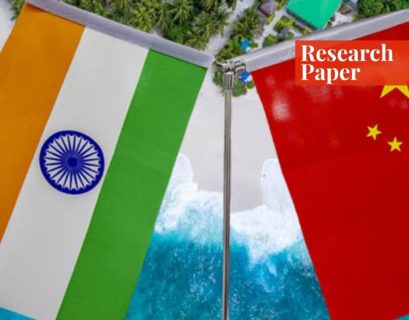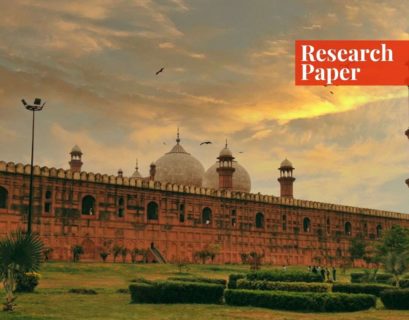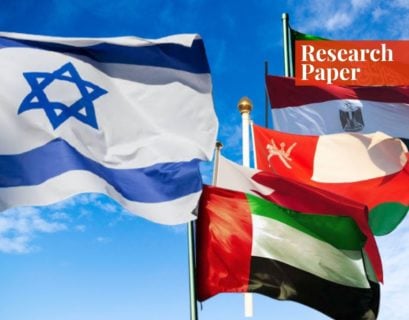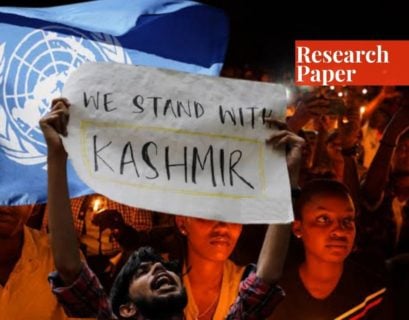The India-US Nuclear Deal & Its Implications for Pakistan
In its quest to contain the Chinese influence by supporting India, the US has compelled Pakistan to seek an alliance with Russia and China. Huda Raza and Sher Ali Shahid analyze the Indo-US strategic partnership, particularly in the realm of nuclear technology, and its impact on the balance of power in South Asia. The authors note that the India-US nuclear deal represents a shift in the US foreign policy from Pakistan to India. Although the two parties claim that the deal is for peaceful purposes, it poses a threat to the stability of South Asia and elevates Pakistan’s security dilemma.
Pegasus Spyware: A Case of National Security & Modern Warfare
Hamna Binte Waqar examines the change in the cyber security realm with the advent of the NSO Group’s Pegasus spyware. After targeting several countries, governments, and individuals, the software has created an uproar in international politics and media. It is now seen as a threat to the national security of states and as an unconventional weapon capable of extracting private information and generating propaganda. While Pegasus has faced continuous backlash, the need to adapt to the transition in the modes of warfare has slowly made it a sought-after weapon in the contemporary security market.
The Rise of AI and the Future of War
Technological evolution has steered the world in a new direction. Artificial intelligence has become deeply embedded in military operations and has changed the very nature of war. Ahsan Riaz discusses how autonomous weapons have become an area of interest for the international community. Though useful, the pursuit and use of these weapons will have severe implications for the states involved in a conflict.
Hate Speech vs Free Speech Explained
Kanz-ul-eman differentiates between hate speech and free speech. She explains how hate speech has thrived under the umbrella of freedom of speech and become widespread in Pakistan and the rest of the world. Various forms of media are being used to disseminate hate speech to incite violence against different groups. The author notes that terrorist groups, in particular, have taken a liking to social media platforms to spread harmful messages and for recruitment purposes.
China-Taiwan Conflict: A Clash of Identities
Atiqa Javed explains the China-Taiwan conflict through the lens of social constructivism. She argues that both China and Taiwan have constructed separated identities in their respective population’s consciousness. On top of that, the clash between the growing Taiwanese consciousness and the traditional Chinese identity has heightened the tensions between the two parties, jeopardizing East Asian stability.
The Impact of Anti-Nuclear Global South Movements on the Control of Nuclear Weapons
Before being banned, nuclear testing in the Global South had been a major issue for leaders and citizens in those countries. The West found the Global South’s soil to be fair game for nuclear testing while preserving the sanctity of their own lands. In this essay, Dina Tawfik proposes and answers the following research question: to what extent have the Global South’s antinuclear movements had an impact on curbing the usage of nuclear weapons as well as nuclear testing, and on developing a non-proliferation global norm, and nuclear disarmament?
China’s BRI vs the US’s FOIP: Foreign Policy Opportunities and Challenges for Malaysia
Contemporary publications identify Indo-Pacific as a hub of great power politics. The great powers, China and the US, are striving their best to enhance their sphere of influence across the region through BRI and FOIP respectively. These two strategies bring some opportunities along with certain challenges for ASEAN member states. In this research paper, the structural realism lens is used to analyze the foreign policy situation of Malaysia under these circumstances.
Explaining the Party System in Canada
Since the 1900s, the Canadian party system has evolved from a two-party system to a multiparty. Hurain Sheikh analyzes Canada’s party system in the light of Duverger’s law and Johnston’s study of the system. She argues that the present-day party system in Canada is not based upon polarization but rather on moderate pluralism. Since most Canadians have moderate views on social, economical, and political policies, even the parties with extreme ideological beliefs had to gradually adopt a more moderate stance to appeal to the masses.
The Conflict in Syria & Its Brutal Effects on the People
What started off as protests against the authoritarian regime of Bashar al-Assad in 2011, has turned into a decade-long war involving international and domestic actors. The author, Amna Shaukat, applies the conflict tree model to explain the deep-rooted causes of the conflict and the effects of this war on the people of the state. Since the war first broke out, almost 400,000 Syrians have lost their lives while millions have been displaced—internally and externally. It has left Syria devastated in every way. The economy itself will take years to recover, but that too, requires the war to end.
Relevance of the Marxist International Relations Theory
Today’s global politics revolve around the industrialised world. Therefore, the Marxist international relations theory is relevant to a great extent in analyzing contemporary global politics. The goal of this theory is to radically modify the current social and political order by relying on Karl Marx’s philosophy.
The China-India Rivalry in Maldives Explained
The strategic location of the Maldives, particularly its proximity to the straits of Malacca and Hormuz and the Gulf of Aden, has drawn the attention of India and China. While China and India are competing with each other to exert their influence on the Maldives, the island state is fully benefitting from its cordial relations with the rival states. Though the China-India competition has serious implications for the stability of South Asia, the author, Zahra Michelle Khan, argues that the Maldives also presents opportunities for cooperation between the two states.
Can Pakistan’s Tourism Exceed the Maldives’?
Pakistan is striving to develop maritime tourism to broadcast its image as a tourist-friendly country and to prosper economically. The authors, Akseer Ali Saif Janjua, Sarah Kiyani, Saliha Waseem, and Saqib Ameen, explore the country’s tourism potential, and the development carried out in the sector by comparing it to the Republic of Maldives—a country which was once considered unsuitable for tourism but is now one of the world’s top tourist destinations.
Iran: A Common Enemy of Israel and the Arab Countries
The relations of the Arab states, namely Saudi Arabia, the UAE, Bahrain, Egypt, and Oman, with Israel have always been based upon what they perceive as a threat and what benefits them. The authors, Rubab Nawaz and Kanza Tahir, explain that initially, these Arab states viewed Israel as the enemy but now, they’ve started to align themselves with it to counter the threat of a Shi’ite and nuclear Iran. This threat has been securitized to gain legitimacy from the masses. For the sake of this Arab-Israel alliance, the Gulf states seem to have sidelined the issue of Palestine.
All Eyes on the Republics of Central Asia’s Resources
The onset of the geopolitics of energy and resources in the international political system has redefined the regions’ importance in terms of the reservoirs of resources. Central Asia, in this respect, stands out with its abundant, unexplored, and top-notch natural resources. The paper highlights the factors behind the arousing interests of Pakistan, China, and the United States in the Central Asian republics. The future of Central Asia’s political, economic, and geostrategic landscape shall be determined by the member countries’ course of policies and actions towards Pakistan, China, and the United States.
A Peaceful Afghanistan: The Interest of Pakistan, China, & the Region
Over the years, the state of Afghanistan has experienced terrorism, drug trafficking, human rights abuse, political turmoil, geostrategic and geo-economic tussle, and societal deterioration. The instability in the state has impacted Pakistan, China, Iran, Turkey, and the Central Asian Republics as well. The authors, Muhammad Saad, Eman Anjum, Jizza Babar, and M. Shaheer Khattak, note that for their own interests, these regional states seek a peaceful Afghanistan, the establishment of which is not an easy task. For this reason, they have made efforts to stabilize and develop the war-torn state.
Questioning the Role of the United Nations (UN)
This research paper aims to evaluate the role of the United Nations Organization in light of some of the most highlighted events in its history, ranging from Rwanda to Kashmir; the crises mentioned will be summarized and analyzed to provide the reader with only the relevant information which is consistent with the central theme of this paper.
In addition to this, the paper will also shed light upon the effectiveness of the UN when it comes to dealing with the world’s superpowers. A brief part of this paper will scrutinize the role of the International Court of Justice from a legal point of view, covering its overall structure and the extent to which its decisions are binding on the member Nations.
